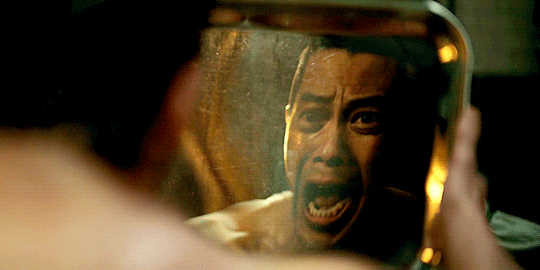First of all I just would like to say the episodes we watched really had me thinking. How does my mind actual interact with my body? Are they separate entities that support each other? Can one really exist without the other? These are just the few questions that circulated my mind as I watched these episodes.

I started off watching the “Out of the Past” episode from Altered Carbon (I am definitely watching the rest of this show). The show takes place in the future so of course they have developed a way to live longer… however it’s a very interesting take. They literally take the consciousness or the mind and put it in a stack where essentially the body comes disposable after. I feel like this encompasses the concept of cybernetics because essentially this stack is like computer software which can be transferred over to a new sleeve (body). Therefore the body is essential because the stack can’t continue without a new sleeve. This shows how the body is a necessity to the mind as it provides the necessary feedback for the mind to continue.

The scene above really shows this transfer from on sleeve to another. It’s really trippy. I feel this scene is like a computer going through an update. The mind which has just been placed into a new body and it is updating to adjust to this new body. I mean talk about a long update!
The “Return to Tomorrow” episode from Star Trek: The Original Series was next on my list. For me, it really reflected the thought of 4e cognition. But in particular embodied cognition was highlighted throughout the episode. In particular when the mind entity of Sargon transmitted into Captain Kirk’s body, it was almost as if Sargon felt euphoric to be in a body once again. He is so happy to finally feel all his sensorimotor capabilities and how desperately he needs it which is what embodied cognition represents.

We can’t have our mind and the emotions without a body to really feel all those emotions. Which is why Sargon so desperately needs help in order to regain his body again. To me it makes sense, I would not want to exist without actually being able to physically feel. It is a necessity.

The last stop for me was the Futurama episode, “The Day the Earth Stood Stupid.” Now first I feel like I went from very realistic and probably to very unrealistic and not possible. I mean after all it is Futurama. I feel like here we really see that common concept of the “Brain in a Vat.” I mean after all the big brains say it all. The brain essentially is suspended in a vat as it is floating around in what appears to be liquid. Here the mind is separate from the body and is located only in the brain which is why the these big brains have immense power and able to take over.
Really though…this is Futurama so I can’t fully take it seriously.
I will say though all these episodes allow me to really explore the concepts of the mind and body and that relationship. It really does make me question which is more important or if they are equally important. I mean its a trip which I don’t think we will ever have a solid answer for.






